
The White Mans Burden History (24 x 36)
Take up the White Man's burden—. The savage wars of peace—. Fill full the mouth of Famine. And bid the sickness cease; And when your goal is nearest. The end for others sought, Watch sloth and heathen Folly. Bring all your hopes to nought. Take up the White Man's burden—.

The White Man's Burden (Audiobook)
Rudyard Kipling, The White Man's Burden, 1899 This famous poem, written by Britain's imperial poet, was a response to the American take over of the Phillipines after the Spanish-American War. Take up the White Man's burden--Send forth the best ye breed--Go bind your sons to exile To serve your captives' need; To wait in heavy harness,
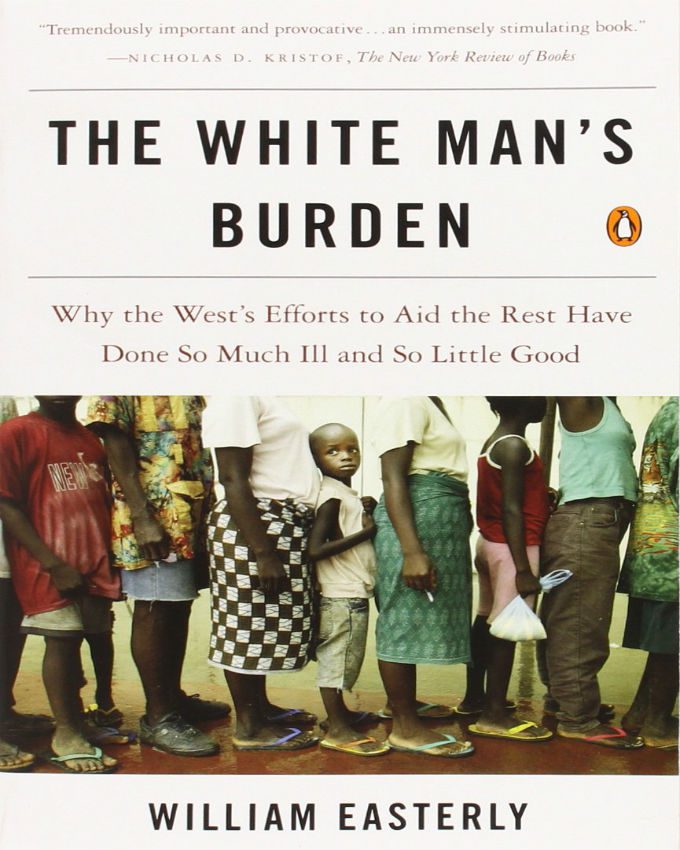
The White Mans Burden Nuria Store
Take up the White Man's burden— And reap his old reward: The blame of those ye better. The hate of those ye guard— The cry of hosts ye humour (Ah slowly) to the light: "Why brought ye us from bondage, "Our loved Egyptian night?" Take up the White Man's burden-Have done with childish days-The lightly proffered laurel, The easy.
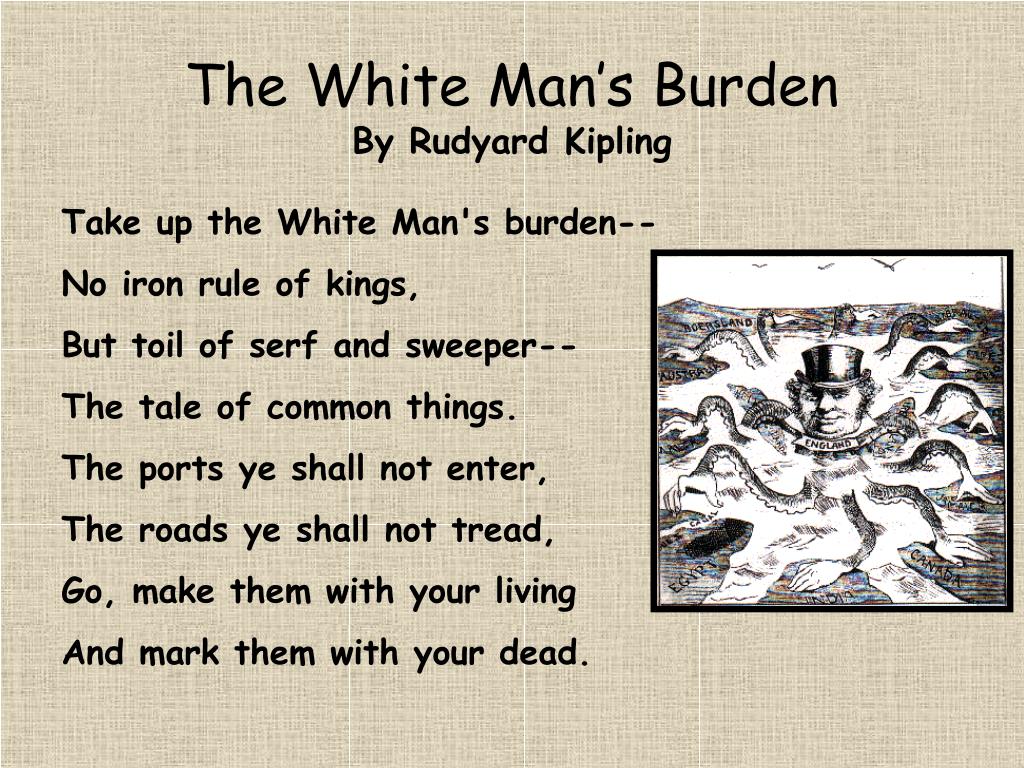
The White Mans Burden Rudyard Kipling Poem
" The White Man's Burden " (1899), by Rudyard Kipling, is a poem about the Philippine-American War (1899-1902) that exhorts the United States to assume colonial control of the Filipino people and their country. [1]
File"The White Man's Burden" Judge 1899 (cropped).png Wikimedia Commons
The White Man's Burden (1899) by Rudyard Kipling. This famous poem, written by Britain's imperial poet, was a response to the American take over of the Philippines after the Spanish-American War. Take up the White Man's burden-. Send forth the best ye breed-. Go bind your sons to exile.

Solniger X, "The White Man's Burden," 2013 CounterCurrents
Take up the White Man's burden—. The savage wars of peace—. Fill full the mouth of Famine. And bid the sickness cease; And when your goal is nearest. The end for others sought, Watch sloth and heathen Folly. Bring all your hopes to nought. Take up the White Man's burden—.
[As counterpoint] “The White (?) Man's Burden” 1899. PropagandaPosters
FEFF. Rudyard Kipling, The White Man's Burden, 1899. This famous poem, written by Britain's imperial poet (born in India, boarding school in Britain, journalist in India, fame in Britain, and marriage and live for a time in USA), was a response to the American take over of the Phillippines after the Spanish-American War.

'The White Man's Burden' Stock Image C018/3216 Science Photo Library
Kipling's ideas came across clearly in his poem, 'The White Man's Burden'. In the poem, Kipling praised those who went to the empire as the best of Britons, who worked hard to civilise and Christianise the world. Conversely, Kipling portrayed the non-white people of the empire as lazy, stubborn, stupid, and heathen.

Solniger X, "The White Man's Burden," 2013 CounterCurrents
By Rudyard Kipling In this controversial poem, Rudyard Kipling taps into the imperialist mindset and what he, and others, saw as the "white man's burden." Read Poem Poetry+ Guide Share Cite Rudyard Kipling Rudyard Kipling was an incredibly popular English poet. His writing is read around the world and studied in classrooms in multiple languages.
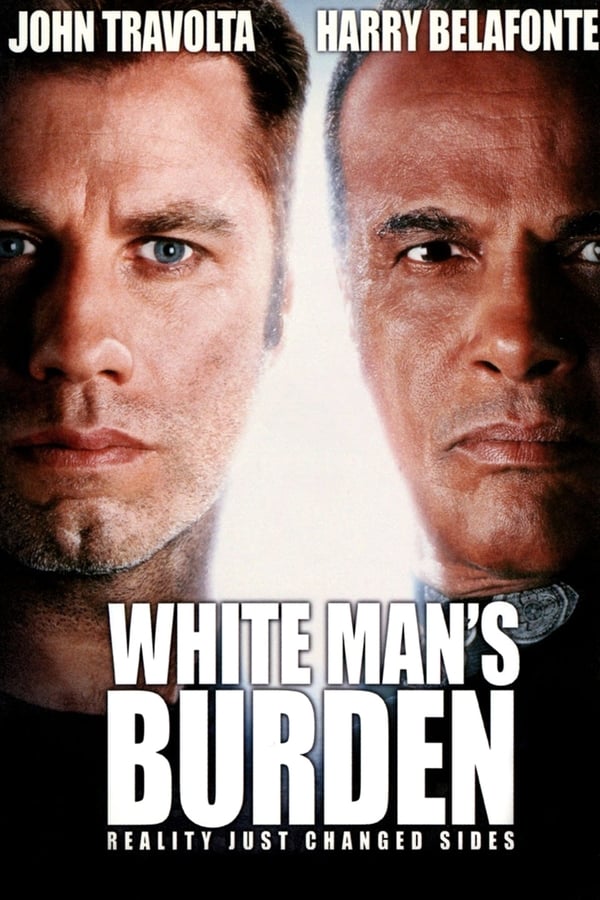
White Man's Burden (1995) — The Movie Database (TMDB)
Background Completed by late November 1898, it was written at the point when the US, in a reversal of previous policy, and despite internal opposition to the move, first became an imperial power. On 25 April 1898, America had declared war on Spain, ostensibly to free Cuba from Spain, though that is not how the Cubans see it.
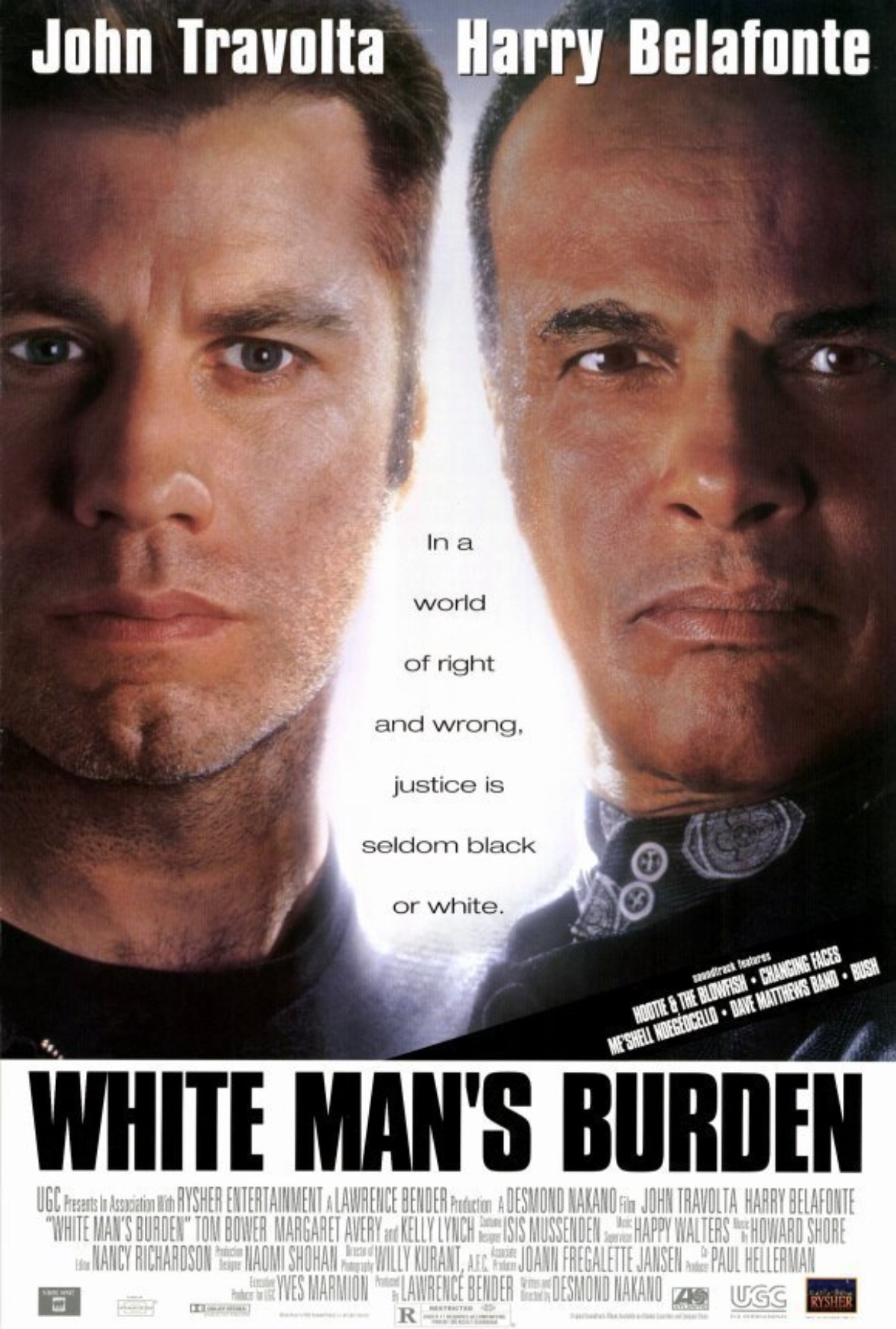
White Man's Burden VPRO Cinema VPRO Gids
"The White Man's Burden" is a poem by the British Victorian poet and novelist Rudyard Kipling. While he originally wrote the poem to celebrate Queen Victoria's Diamond Jubilee in 1897, Kipling revised it in 1899 to exhort the American people to conquer and rule the Philippines.

PPT “The White Man’s Burden” PowerPoint Presentation, free download
1899 (The United States and the Philippine Islands) Take up the White Man's burden - Send forth the best ye breed - Go bind your sons to exile To serve your captives' need; To wait in heavy harness On fluttered folk and wild - Your new-caught sullen peoples, Half devil and half child.

White Man's Burden de Desmond Nakano (1995) Unifrance
Kipling's message in the poem is clear: the white man owes it to his God, his fellow countrymen, and the non-Western world to send his sons out into "exile" in the far-flung corners of the.
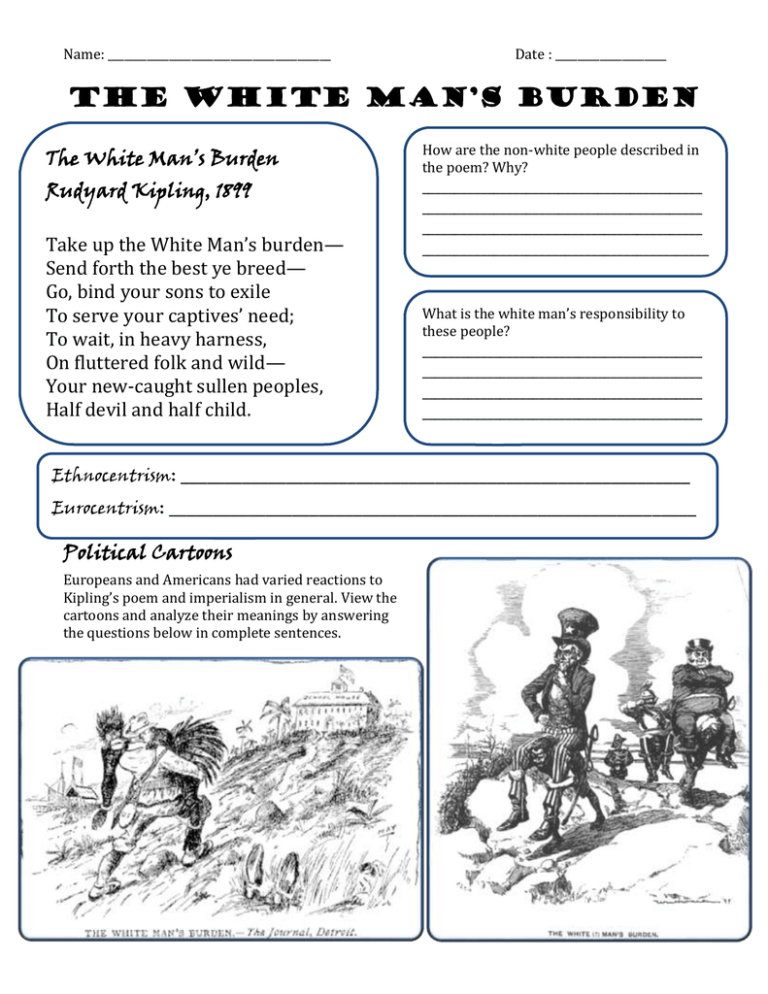
The White Man’s Burden
The White Man's Burden Rudyard Kipling 1865 (Mumbai) - 1936 (London) Death Family Life Love Melancholy Take up the White man's burden -- Send forth the best ye breed -- Go bind your sons to exile To serve your captives' need; To wait in heavy harness On fluttered folk and wild -- Your new-caught, sullen peoples, Half devil and half child.
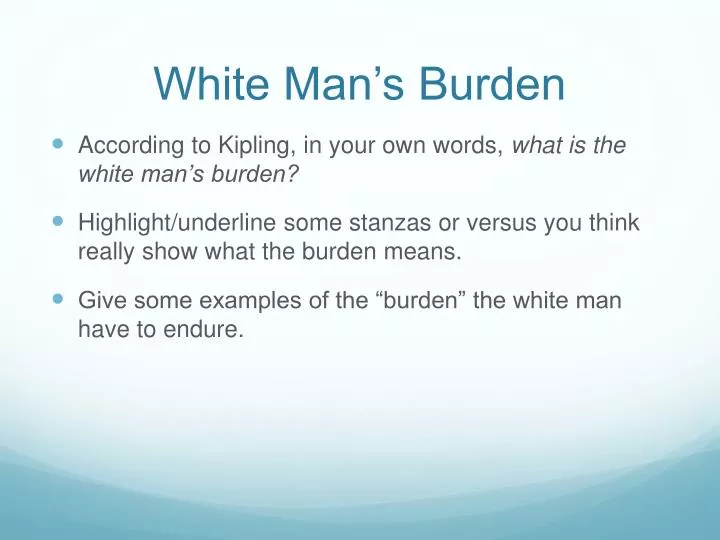
PPT White Man’s Burden PowerPoint Presentation, free download ID
"The White Man's Burden" is a lyric poem written by Rudyard Kipling, an English short-story writer, novelist, and poet who achieved enormous success and acclaim during his lifetime. The poem was published simultaneously in The Times newspaper in England and in McClure's Magazine in the United States in February 1899. Directly under the title appeared the words, "The United States and.

"The White (?) Man's Burden" by American Illustrator William H Walker
Analysis. "The White Man's Burden," published in 1899 in McClure's magazine, is one of Kipling's most infamous poems. It has been lauded and reviled in equal measure and has come to stand as the major articulation of the Occident's rapacious and all-encompassing imperialist ambitions in the Orient. The poem was initially composed.